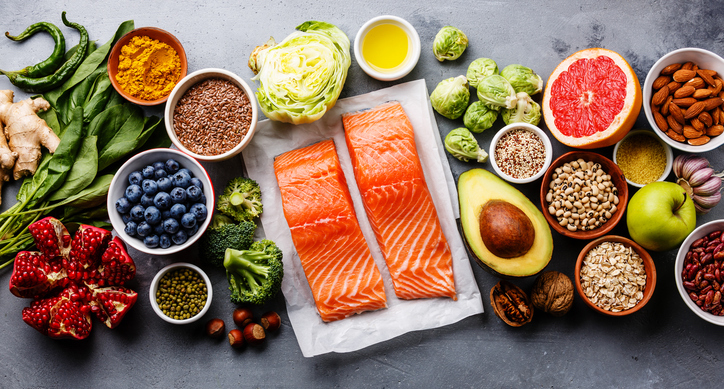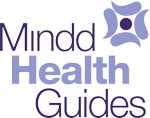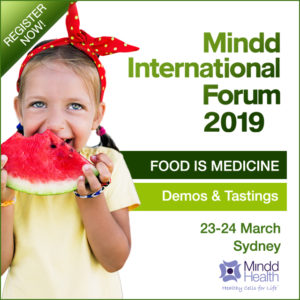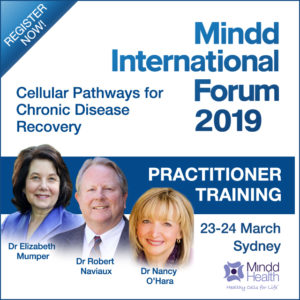Food is Medicine a Key Theme at Mindd Forum 2019 Public Program
Each year Mindd Health presents practical demonstrations by dynamic speakers and practitioners who inspire with new ideas and strategies to bring food-is-medicine principles into your everyday diet and lifestyle. This is a public program for the Mindd Community as well as interested practitioners and allied health professionals.
Good Nutrition Supports Body, Mind and Emotions
Eating high-quality food is fundamental to providing good nutrition for the body, mind and emotional balance. It is essential to ensure that food contains the maximum possible quantity of phytonutrients, vitamins, and minerals. This supports the body to utilize Food as Medicine. The body also needs antioxidants, fatty acids, and fibre which can regularly be consumed from the diet. Without these crucial components in the diet, individuals can experience a reduction in overall quality of life, disease, and even death. This article introduces principles worth considering to optimize food as medicine:
- What it means to use food as medicine
- The best medicinal foods for the diet
- How to determine when food is not the cure
- It’s not always what you eat, but how you eat it
What It Means to Use Food as Medicine
The ingredients necessary for a recipe for health include:
- Balanced hormones
- Stable blood sugar
- Controlled inflammation
- Effective detoxification
- An alkalized body
Consequently, food can either move the body toward or away from making that recipe. This is the pivotal difference between real food acting as medicine or as poison.
What does it mean to use Food as Medicine? It’s not always what you eat, but how you eat it
Balanced Hormones
Balanced hormones boost the body’s energy level and cognition while maintaining body weight, libido, and many other processes. Disturbances in hormonal levels can lead to fatigue, depression, diabetes, obesity, autoimmune conditions, fertility issues, and even accelerated aging.
Stable Blood Sugar
Stable blood sugar fights off insulin resistance, an underlying yet direct contributor to diabetes, weight gain, and obesity. Erratic blood sugar levels can affect hormone levels, produce neurological damage, and cause mood disorders.
Controlled Inflammation
Controlled inflammation is the most effective way to avoid most diseases and slow the aging process. As a natural immune response, inflammation affects nearly every area of the body. Accordingly, chronic inflammation has been linked to several chronic health conditions like arthritis, obesity, and Leaky Gut Syndrome.
Effective Detoxification
Effective detoxification supports digestive health, liver function, and balanced hormone levels. With chemicals polluting the environment and food, removing toxins from the body is essential to overall health. Poor detoxification is a major contributor to autoimmune conditions, inflammation, nerve damage, infertility, hypothyroidism, and many other serious health conditions.
An Alkaline Body
Alkalising the body refers to keeping its internal pH level around 7.36. An alkalised or bones.
The Best Medicinal Foods for the Diet
Eating less may seem ideal for weight loss, but research shows that as calorie intake decreases in the elderly, rates of cancer, heart disease, and other diseases increase. While age may play a small role in this effect, researchers are convinced that the trend speaks more to the poor quality of food consumed. That is, even with food, quality is better than quantity. So, the diet should consist practically exclusively of these medicinal foods:
-
Antioxidant-Rich Foods
Powerful detoxifiers, foods rich in antioxidants resist damage from free radicals and ultimately slow the effects of aging. Fortunately, high antioxidant content is one of the easiest features to determine; just look for natural, brightly colored produce!
-
Bone Broth
Bone broth is a staple in any healthy diet for its abundance of nutrients, such as electrolytes, collagen, and glucosamine, which lower the risk of developing allergies, anemia, arthritis, fatigue, Irritable Bowel Disease, and Leaky Gut Syndrome.
-
Fibre, Fibre, and…Fibre
Mostly marketed for the elderly or those suffering from irregular bowel movements, fibre intake has become dangerously low especially in western populations. However, fibre maintains heart health and immunity while lowering cholesterol and regulating blood sugar and insulin levels. As little as 25 to 30 grams of fibre per day lowers the risk of cancer, cardiovascular disease, gastrointestinal disorders, menstrual issues, and obesity.
-
Fresh, Raw or Lightly Cooked Vegetables
Low in calories, but high in antioxidants, magnesium, potassium, iodine, fibre, phytonutrients, vitamin C, and vitamin K, vegetables slow aging while alkalising and detoxifying the body. These beneficial effects fight free radical damage and inflammation as well.
-
Omega-3 Fatty Acids
Omega-3 fatty acids are considered good fats because of their unmatched ability to limit inflammation, keep hormone levels balanced, prevent cancer, promote healing, and boost cognition. It is important not to confuse omega-3 fatty acids with Omega-6 fatty acids which alternatively promote inflammation.
-
Other Healthy Fats
Avocado oil, coconut oil, extra virgin olive oil, ghee, and grass-fed butter are other healthy fats with medicinal effects. They are particularly effective in lowering bad cholesterol and losing weight. Additionally, these healthy fats have some favorable side effects such as shinier, healthier hair and nails.
-
Organ Meats from Organic, Grass-fed Animals
High in phosphorous, magnesium, iron, zinc, vitamin A, and the greatest source of vitamin B12, chicken or beef liver is considered a superfood for its ability to aid in detoxification, promote nervous system function and brain health, support metabolism, boost immunity, prevent anemia, and maximise fertility.
-
Pre- and Probiotic-Rich Foods
Research continues to discover links between poor gut health and diseases like food allergies, fatigue, mood disorders, joint pain, psoriasis, and thyroid imbalance. Beneficial microbes in the gut help prevent these illnesses, but they do require replacement. Thus, prebiotic- and probiotic-rich foods must be consumed regularly to replenish those good microbes and maintain optimal gut health.
Many nutritional specialists recommend that you “eat a rainbow”
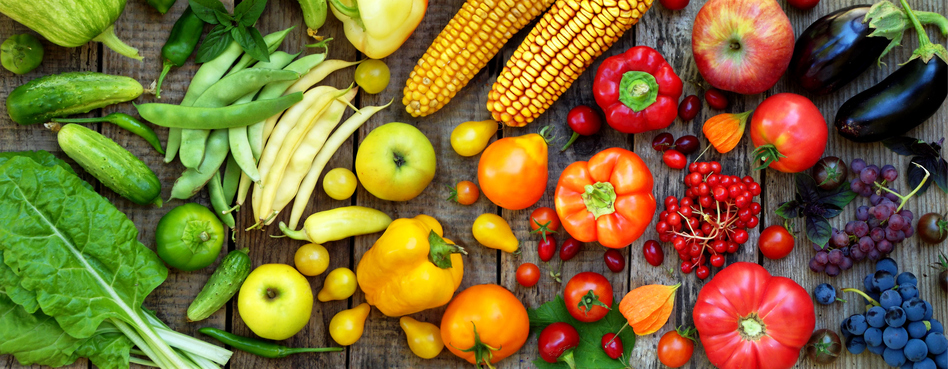 Keeping these amazing medicinal foods along with all their benefits straight can be a challenge. Thus, many nutritional specialists recommend that you “eat the rainbow” meaning you should strive to consume as many colors of the rainbow as possible. Eating in that manner ensures that most medicinal benefits are obtained from the diet. Get started by following this guide:
Keeping these amazing medicinal foods along with all their benefits straight can be a challenge. Thus, many nutritional specialists recommend that you “eat the rainbow” meaning you should strive to consume as many colors of the rainbow as possible. Eating in that manner ensures that most medicinal benefits are obtained from the diet. Get started by following this guide: 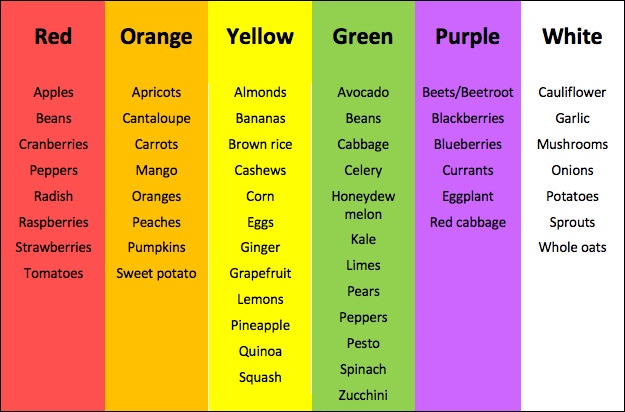 Another way to use food as medicine is to eat according to the organ or condition that is in need of improvement. For instance, garlic and onions are ideal for fighting bacterial or fungal infections. Animal- and plant-based forms of omega-3 fatty acids reduce inflammation in the body thereby alleviating arthritis, leaky gut, and some food allergies. Eating whole superfoods can greatly assist in avoiding overeating as well as junk food cravings ultimately lowering the risk of insulin resistance, blood sugar imbalance, obesity, and cancer.
Another way to use food as medicine is to eat according to the organ or condition that is in need of improvement. For instance, garlic and onions are ideal for fighting bacterial or fungal infections. Animal- and plant-based forms of omega-3 fatty acids reduce inflammation in the body thereby alleviating arthritis, leaky gut, and some food allergies. Eating whole superfoods can greatly assist in avoiding overeating as well as junk food cravings ultimately lowering the risk of insulin resistance, blood sugar imbalance, obesity, and cancer.
How to Determine When Food is Not the Cure
- Planning menus and writing grocery lists in preparation for shopping instead of just walking through the supermarket picking up items.
- Buying foods in season when they are in abundance and typically cost less because their transport is less tedious and therefore, costs less.
- Reading product labels which reveal items’ ingredients along with their cities or countries of origin; an organic tomato grown locally contains the same nutrients as an organic tomato grown in Brazil—it just has a cheaper price tag.
- Browsing the freezer aisles where many fruits and vegetables picked at their peak of freshness can be found at more reasonable prices than their counterparts in the fresh produce section.
Now, after committing to a healthier diet of medicinal foods, it is possible to still suffer from less than optimal health. Overall, the body speaks to whether it is in a state of health or state of disease. (yellow lights) as warnings to show caution, slow down, or possibly even turn around. State of health signs (green lights) serve as encouragement to press forward and keep up the good work! Here are some signs to look out for: 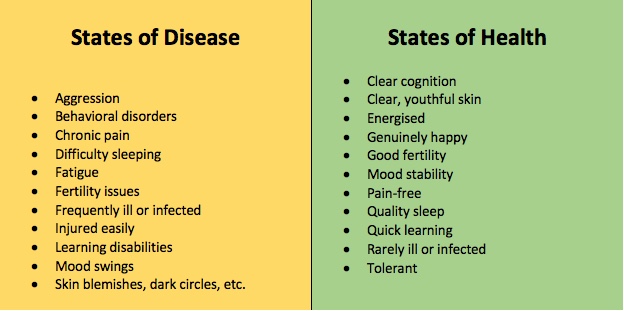
It’s not always what you eat, but how you eat it that provides Food as Medicine
If any of the states of disease signs above persist following consistent consumption of medicinal foods, then it is best to consult a medical professional. It is important to remember that many hidden factors, such as genetics, heredity, and the environment, play significant roles in the development of disease or co-morbidities. Nevertheless, converting to a nutrient-dense diet can still help dramatically in revealing that one of those hidden factors is at work. Committing to using food as medicine often demands an “all-or-nothing” approach. Some experts recommend taking a cheat day once a week by eating unhealthy foods for one day. However, many people cannot restrict themselves to one day of indulgence. And such indulgence, even for one day, makes it that much more difficult to reverse a state of disease thereby undermining any anticipated benefits of using food as medicine. The primary way to overcome unhealthy, disease-inducing cravings is to make small changes that are simple to maintain and, after a while, even enjoyable! Two examples of these small changes are mindful eating and meal journaling.
Mindful Eating – for Food Appreciation
Mindful eating begins with planning meals and reading food labels in the supermarket. Paying attention to how food is prepared is the next important step. Consuming vegetables raw or lightly steamed guarantees that most of their nutritional content is protected for absorption. When consuming other healthy foods, make sure they are eaten with minimal alteration from the source. That is, avoid preservatives, artificial sweeteners and flavorings, and genetically modified ingredients at all costs. Finally, chew slowly and appreciate the unique flavors that only natural foods possess.
Meal Journaling Can Change Your Eating Habits
Meal journaling also referred to as keeping a food diary, is an invaluable step toward changing eating habits for the long term. This process simply involves recording how many meals are consumed each day as well as what the meals consist of. As individuals get into journaling, they often go further by rating the recipes they liked the best or logging the total number of calories they consumed each day. These techniques generate engagement and ultimately reinforce the dietary changes necessary to employ food as medicine.
Drink Water for Hydration
As a bonus tip, do not underestimate the powerful effects of water! In addition to hydrating the body, water helps curb hunger and cravings for unhealthy foods. Providing a balance of appetite and protection against overeating, drinking a lot of water is also essential to detoxifying and alkalising the body. Recommended water intake is 104 ounces for men and 72 ounces for women. But, keep in mind that fruits and vegetables contain a large volume of water, so their consumption contributes greatly to those daily recommendations as well.
.
.
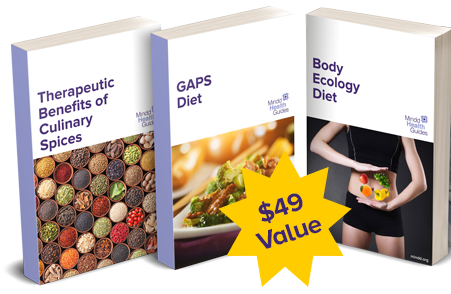
Get 3 Mindd Health Guides
When you sign up for the Mindd Forum News
[contact-form-7 id=”783″]Food as Medicine References
Axe, J. (n.d.). Food is medicine: The diet of medicinal foods, science & history. Retrieved from https://draxe.com/food-is-medicine/ Axe, J. (n.d.https://draxe.com/is-liver-good-for-you/ Dubounet, D. D. (n.d.). The wisdom of Dr Henry Bieler on foods and detox [PDF document]. Retrieved from http://www.downloads.imune.net/medicalbooks/The%20Wisdom%20of%20Dr%20Henry%20Bieler%20on%20foods%20and%20detox.pdf Gorn, D. (2017, January). Food as medicine: It’s not just a fringe idea anymore. Retrieved from NPR at https://www.npr.org/sections/thesalt/2017/01/17/509520895/food-as-medicine-it-s-not-just-a-fringe-idea-anymore Holmes, L. (2011). Food is medicine. Retrieved from https://www.superchargedfood.com/food-is-medicine/ Karpel, M. (2015). The magic of water. Retrieved from https://drmarakarpel.com/magic-water/q Karpel, M. (2016, June). Food for the soul. Retrieved from The Huffington Post at https://www.huffingtonpost.com/entry/life-saving-changes-to-your-diet_b_10467872.htm



